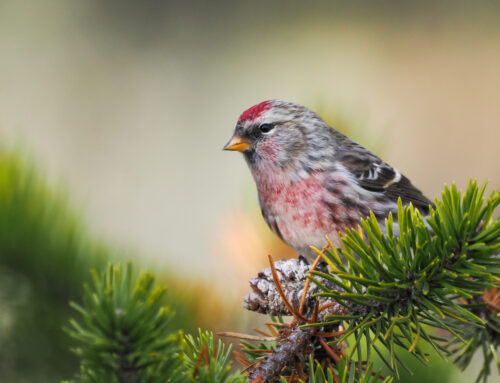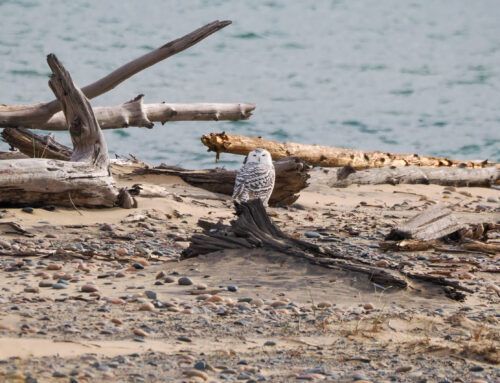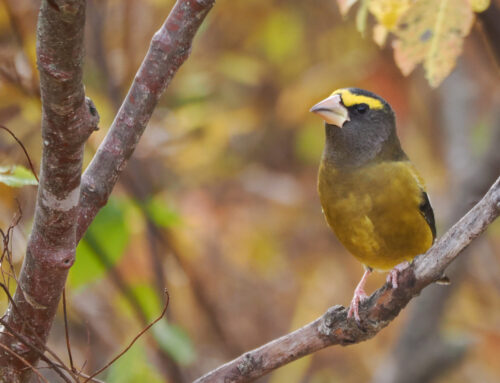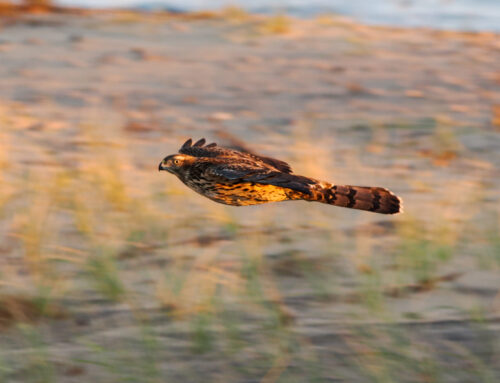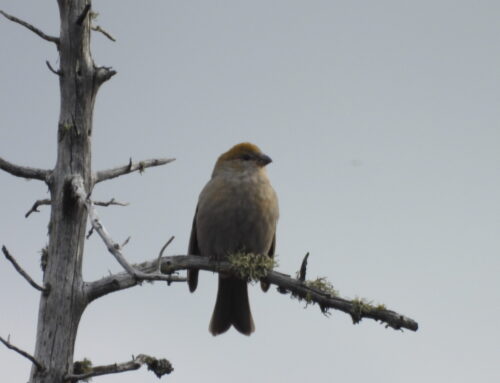The last chick lives!
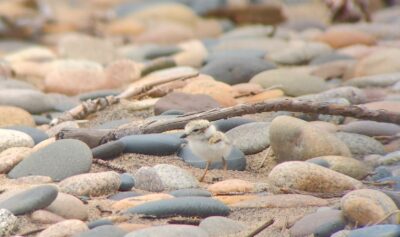
“Baby” on June 29. Photo by Stephanie Owens
After last week’s turbulence, I’m happy to report our plover family is alive and well.
My days are now occupied with watching Vie and Little Bill Bob care for their chick. I’ve been calling the chick “Baby” in reference to the film Dirty Dancing. Beforehand, I tried the name “Earl” but quickly changed it once the Dixie Chicks song came to mind.
Baby has been growing like a weed. I’ve enjoyed watching him swiftly scurry along the beach. Sometimes, it seems he has a rebellious streak and will approach the edge of the shore on a day with strong waves. One time, I witnessed Baby get toppled over by one but quickly recover on his feet.
During windy days, I typically find Baby nestled beneath a parent. This was not the case on Sunday, June 30, however. When I arrived, the wind was raging at 18 mph, and the waves were crashing fiercely on the shore. I walked a loop around where I usually find the family but could only spot the parents, who were located suspiciously far apart. I began walking in the dunes and finally stumbled upon Baby, inconspicuously wandering in the grass.
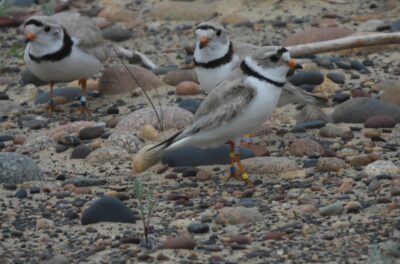
Wybie visiting Vie and Bob. Photo by Polly Sheppard
The aforementioned restlessness of the bachelors has dimmed slightly, but they still visit the family now and then. Wybie and Lover Boy are frequent perpetrators, and they are always met with pushback from Bob and Vie. In news of other single males, Wybie’s inverse Of,BY:X,Y/O has made a few appearances, but he only sticks around for a short time.
Our plovers have a busy schedule ahead of them. Vie will be heading south soon, leaving behind Bob and Baby. Her breeding plumage has even begun to fade away. Baby will be banded on July 7, and considered fledged around the 21st. He is already stretching his little wings in anticipation of flight.
~ Stephanie Owens
2024 Piping Plover Monitor
Featured photo: “Baby” on July 3. Photo by Stephanie Owens
Piping Plover monitoring is a collaborative effort between Michigan Audubon and Seney National Wildlife Refuge (USFWS).
You can keep up with the 2024 Piping Plover action at WPBO by reading Stephanie’s blog posts and following WPBO’s social media (Facebook, Instagram, and X).
Stephanie Owens: 2024 Piping Plover Monitor
 Stephanie is a native Yooper and a recent graduate of Lake Superior State University. She earned a Bachelor of Science in Conservation Biology and completed her senior thesis on the distribution of per- and polyfluoroalkyl substances in waterways in Eastern Upper Peninsula. Previously, she worked as a Piping Plover monitor in the U.P. for two seasons and conducted Black Tern and habitat surveys during that time as well.
Stephanie is a native Yooper and a recent graduate of Lake Superior State University. She earned a Bachelor of Science in Conservation Biology and completed her senior thesis on the distribution of per- and polyfluoroalkyl substances in waterways in Eastern Upper Peninsula. Previously, she worked as a Piping Plover monitor in the U.P. for two seasons and conducted Black Tern and habitat surveys during that time as well.


